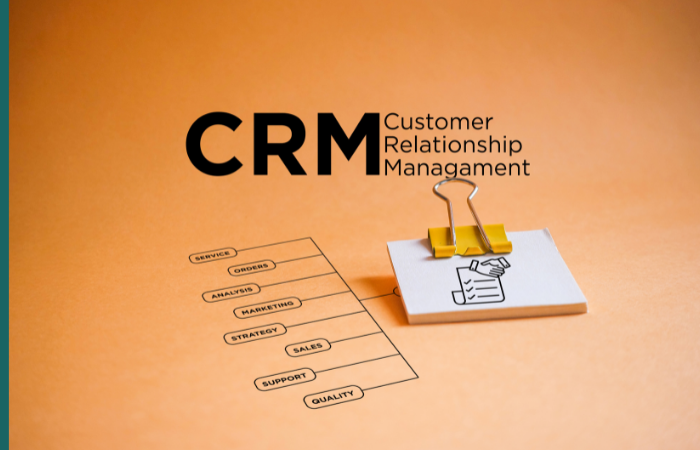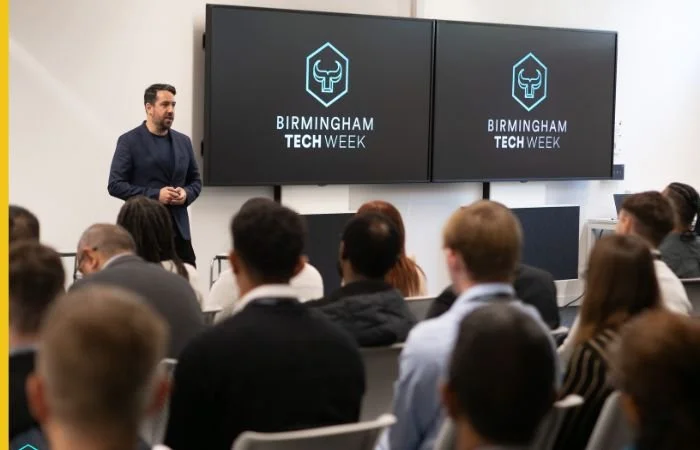Meet the Author of Simple Tips, Smart Ideas
Great to have you here Erica. Before we get into the questions around your expertise and being an Author, I’d love to find out more about you. Who is Erica Wolfe-Murray?
Thank you.
I’m a passionate advocate of small/micro businesses and freelancers having spent much of my working life running my own ventures. These were largely in the creative industries and included both product/graphic design studios, a mail order catalogue and shop that sold the home furnishing/garden accessories I’d designed and had made, an independent documentary production company as well as various joint ventures. Now I run Lola Media which works to help companies innovate and grow through inventive use of their intellectual assets and IP.
This is such an exciting business which allows me to harness both aspects of my career – having been both a creative head and a financial director. I’ve never come across anyone else who’s had both these roles as they are thought to be total opposites! It means we can see both the creative opportunities as well as the financial opportunities in the ideas we come up with.
I’m also a mother of four, so can really appreciate the juggle that owner/managers have dovetailing work and home. I’ve had so many discussions with clients around how to make both aspects work for them.
How did you get into the coaching space, resulting in you transforming so many companies?
It started as a happy accident, really.
I was asked to speak at an event in Bristol about how companies could use IP/intellectual assets inventively to grow their businesses. After the talk, the other speakers and I were each asked to sit with a table of attendees to help them explore the various speeches’ content. After 30 minutes of intensive chat, each person on my table had a new business idea they could take away to implement the next day… Phew!
My session was overheard by someone looking for business coaches to deliver a new Government business growth programme, Growth Accelerator, aimed at fast growth SMEs. He approached me to ask if I would be a coach for their innovation strand. He already had a tv production company client and couldn’t find the right growth coach for them – until he heard me. And then it snowballed from there. I became one of the programme’s leading innovation coaches in the south of England with particular expertise in creative companies. I absolutely loved it.
Sadly the programme which delivered incredible value, revenue and employment growth to the economy got axed in the Government cuts a couple of years back. But I still talk to membership organisations about how they can offer something similar to their members. And I have a number of those Growth Accelerator clients working with me to this day – which is just wonderful.
Why did you decide to write a book (Simple Tips, Smart Ideas) and what did you learn along the way?
When you work one-to-one with as many clients as I do, over time you develop your own methodology which you come to trust as you know it delivers unique results for any company that uses it. The thinking underpinning it is very simple, but effective. I felt sad that only my clients would get the benefits, until someone suggested I write a book…
I went through 26 notebooks of meetings from the previous five years to ensure I hadn’t forgotten anything I’d ever talked about, diagrams we’d drawn, and so on. Then I just poured it all I knew into the book…
But it was only when I was writing it that I realised quite how big the market might be – there are 5m micro companies and 4.6m freelancers in the UK alone. And they get little or no help from really anyone as most support is aimed at start-ups. The methodology in my book works whether you are a freelance plumber or a digital developer. Realising that anyone could benefit from it was thrilling.
Talking about books, I do prefer reading the hard copy over a digital version. What influenced your decision to not go down the popular digital route?
There is actually a digital edition, but I always wanted it to be a workbook that you keep on your desk, referring to repeatedly rather than one that you read through from front to back. I want it to get scuffed, written in, have things stuck to the pages and become well thumbed. And for the business owner to turn to it when things get tricky or they just want a useful idea around something they face. You can’t use digital books in that way.
One publication called me ‘the ‘Delia’ of business’ – which I love, because if it is used to help your business in the way we all use Delia Smith cookbooks to remind us of the basics in the kitchen – that would be so cool.
Tell me a little bit about Lola Media.
I started my current company, Lola Media, about eight years ago. It’s the most exciting venture I’ve ever had for a raft of reasons. We primarily work with companies across the creative, cultural and tech sector to help them innovate and grow. No two days are ever the same - my clients are a joy to work with and we are doing some really inventive things.
If I just take the day ahead of me today - I’ve got a meeting with a barre studio with whom we’ve been developing new business models. Then I’ll be off to a meeting with a corporate gift company who we helped launch a direct to consumer range, and is now developing products to remove single use plastics from high street brands. And on to my last meeting of the day which is with the wonderful tiny top shop in Covent Garden for our product development meeting (which is always huge fun).
But tomorrow will be different and I’m focussing the day on a new app company, Taxo’d, which helps freelancers keep track of how much tax they owe and allows them to file to HMRC. I started working with them 4 years ago and was thrilled to be asked to join the board. It is just going through the FCA approval process now, so is at a very exciting time having launched earlier this year, in fact the week after the book came out. January was a bit of a ride this year!
What’s the best lesson you’ve learnt so far?
I could give you a long list… But perhaps for me the one that really resonates is that by clearly mapping and taking time to truly understand the unique life trajectory that has got you to here from your early childhood is where the secret to developing a totally individual business lies. Particularly for micro companies and freelancers.
What are your top tips on surviving the first stage of running a startup?
First and foremost write down your hopes and dreams – they should be a mix of personal and professional. This list of 5-6 will form the horizon point you are aiming at. As you progress you will be able to check if you are on the right road heading in the right direction. Simple but so important.
Base your business in something you really understand and make it unique by using the mapping mentioned above to see how you can create a business that no-one else could do. That is exactly how my current company, Lola Media, evolved.
Don’t expect your business to be able to support you from day 1 – very few do. Many very successful businesses start out as a side hustle, whilst you keep on with the day job. This allows you time to develop your idea, make mistakes and hone it, without worrying that the income isn’t flowing in as fast as you’d like. People always underestimate how long it takes to develop a business from scratch to reasonable earning levels.
How do you recharge when you need to take time-out?
Exercise is one of my key battery chargers. I love it – whether circuit training (I absolutely kill burpees!), using the TRX, rowing, windsurfing, wild swimming. But I also love lying in the sun reading a good book.
Then I’m passionate about what I can produce in my garden – I have a sun-trap space which grows apricots, peaches, figs, blueberries, goji berries, plums and so on… I planted several new fruit trees last year and had to keep them thoroughly watered so they’d put down strong roots. That long hot summer meant I had to haul 20 buckets of water up out of my old well every evening to keep them and the veg patch alive. It gave me amazingly well defined biceps!
What are your top 3 tips for those working in the self-employed space?
When you are self-employed you have to be across your offer, your finances and the legal aspects of your business. I am often stunned by how many do the first well, but allow the other two to lapse. Understanding these and having control of them is key.
You need to recognise how you work best. I am very happy working with no office, having meetings in a range of workspaces – but that may not be right for others. Or perhaps you work well early in the day or late at night. Get to know what suits you and use it to best advantage.
Thirdly, it is so important to ensure you take breaks regularly. The self-employed can work incredibly hard because they want to bank the work when they have it, worrying about rainy days, their clients may be demanding, or they pay themselves badly. But you have to ensure you look after your physical, mental and emotional health which means going for walks midday, or taking 2/3 days off regularly.
Working freelance does not suit everyone – it is no failure if you have tried it and prefer being an employee. That is absolutely fine.
What does success mean to you?
Quite definitely, success means being able to work with companies and people I find inspiring who’s creativity is just amazing… and I am lucky enough to do it every single day. Who else do you know that works with a world-renown toyshop, a top theatre school, a prosecco company, a barre studio, design companies, a tax app, an antiques emporium et al? I have the very best job in the world.
But now the book is out – it is not my success that matters to me, but the success and growth for those that use it that I really, really want. It would be such magic to hear fantastic business stories in the months ahead of those who picked it up in a bookshop or online, tried out some of the ideas which triggered big leaps forward for their business. How exciting would that be?
What should we look out for over the next 12 months?
One key trend that is starting to gain momentum is diversity of thought… If you have people of all backgrounds, ages, ethnicities, genders in a business, it will have a greater chance of success because you are looking at the world outside of your own bubble. I see this happening more and more now which is brilliant.
The numbers of micro businesses and freelancers will continue to rise as people want to (or have to) step out of the corporate world, yet their influence can be really profound. The realisation that small companies can have big voices and impact is only going to gain momentum and hopefully can drive change in new technologies, healthier use of resources and other better ways of doing business.
With the choppy waters ahead of us, finding a range of revenue streams for our own companies is going to be key. These can be varied – and should be a mix of digital and real world - to help build commercial resilience in the face of an economic downturn.









































































